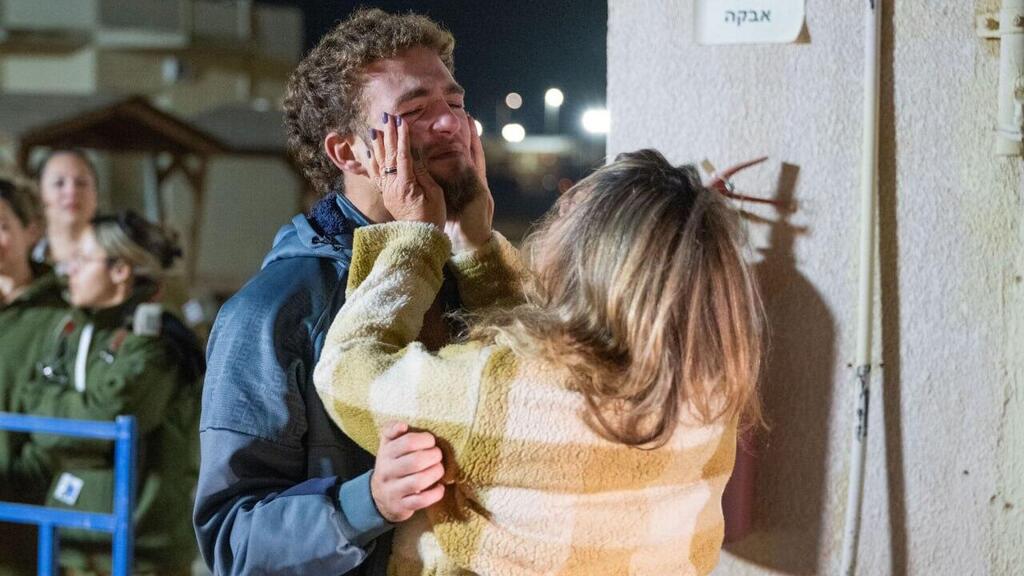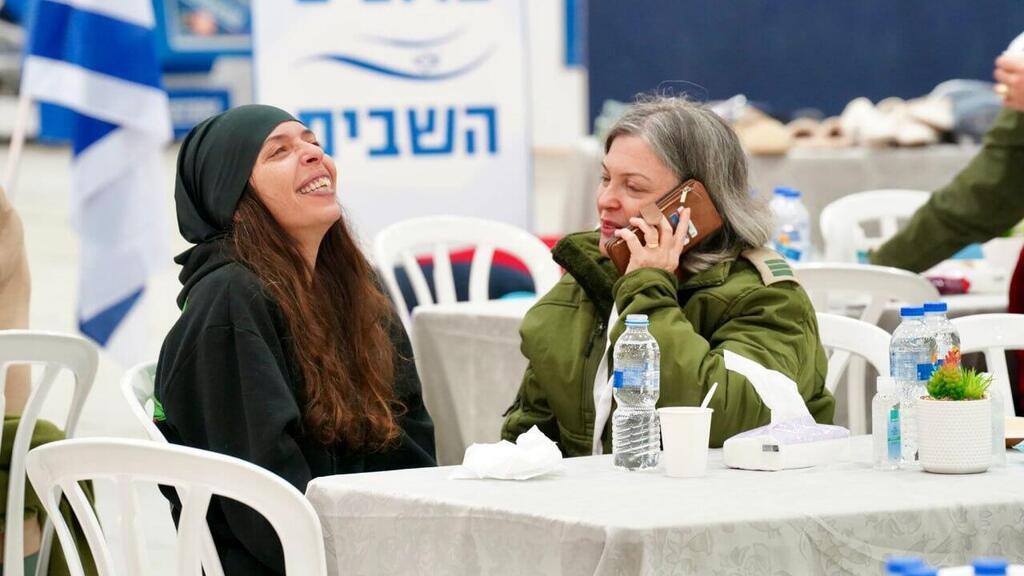Getting your Trinity Audio player ready...
Gali Tarshchanski and her mother are reunited
They waited 54 days for Liat Beinin-Atzili, 49, from Kibbutz Nir Oz, at the school, where she works as a teacher. Wednesday night she returned from Hamas captivity in Gaza as part of the sixth round of releases, but her husband Aviv, a 49-year-old farmer and garage manager, is still in captivity. In the first photos from the release of the hostages upon their arrival at the Hatzerim Airbase near Beersheba, Liat was seen talking excitedly with her family.
Read more:
Other photos after the sixth round of releases showed the first hug of Itay Regev, 18, from Herzliya, with his mother, four days after the return of his sister Maya who was with him at the music festival in Re'im and was injured; the emotional meeting between 18-year-old Liam Or and his father, 54 days after he was kidnapped from Kibbutz Re'im; and 13-year-old Gali Tarshansky's run into her mother's arms.
5 View gallery
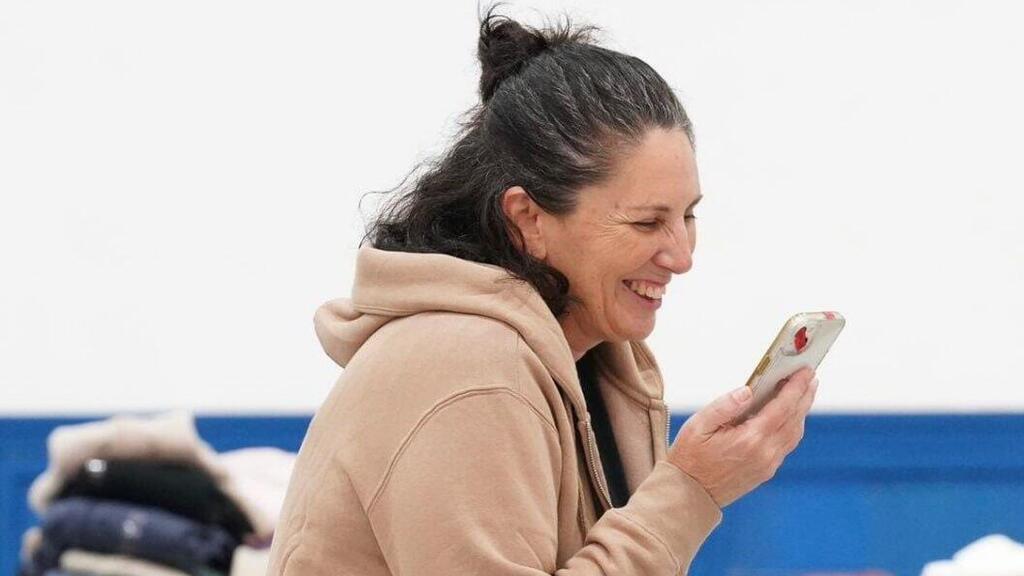

Liat Beinin-Atzili speaks with her family upon her release from Gaza
(Photo: IDF Spokesman's Unit)
"It is difficult for me to express my excitement. It is an exciting and happy day, for me, my team and the entire class and the students. There was a group of students who were waiting for her on the road last night. A group of students waited for the bus in the square to see her. They say she saw them," according to Eyal Dvori, director of the Nofei-Habsor Comprehensive School's Dead Sea branch, where Liat Beinin- Atzili teaches.
"There are many students who had a difficult time functioning due to this situation," he added. "We heard a lot of them saying: 'How can I go back to school when I know that my teacher is in captivity?'"
The students of Liat Beinin-Atzili wait on the side of the road for her to pass after she leaves Gaza
U.S. President Joe Biden spoke last night with the parents of Beinin-Atzili, who also holds American citizenship. "They are full of appreciation. Things are progressing well," he told reporters last night, adding: "She is safe, and will soon be home with her three children."
On October 7, Liat's husband Aviv, a welder and an artist who created works about the fields and the agricultural environment in Kibbuitz Nir Oz, went out to fight alongside the emergency squads against the terrorists. No one in the kibbutz has seen him since. Liat, who also guides at Yad Vashem, has been reunited with her three children, ages 18, 20 and 22. Aya, the youngest, was not on the kibbutz on the day of the attack, and the older ones, Ofri and Neta, were on the kibbutz on October 7 and survived.
5 View gallery
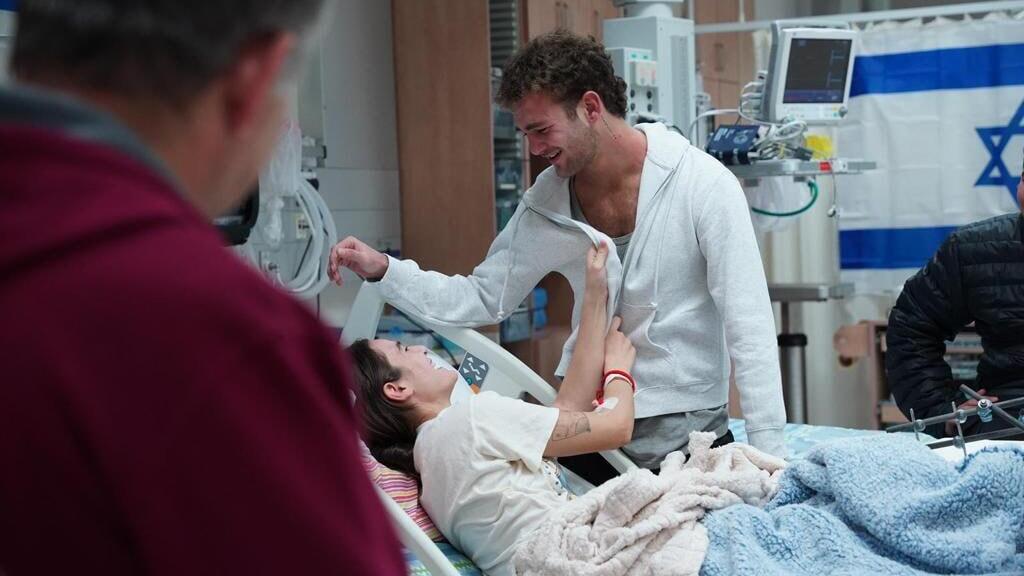

Released hostage Itay Regev visits his sister, Maya, who was released several days ago, in the hospital
The last message Liat wrote in a WhatsApp group of friends on October 7 was: "Holding on." She even had time to talk to a friend of her husband's who was sent to the reserves and tell him that her husband, who went out to fight against the terrorists together with the kibbutz emergency security squad, was still alive. But shortly after that, Liat was kidnapped and Aviv's fate is unknown. The house itself was completely burned by the terrorists.
Amir Ben Zvi, a friend of Liat and Aviv, said that "yesterday we were engrossed in the television coverage until very late. There was a great sigh of relief when we saw her walking with the terrorists who accompanied her. After that in the videos we saw that she had really lost a lot of weight. There is unusual excitement, but it will not end until Aviv is returned."
5 View gallery
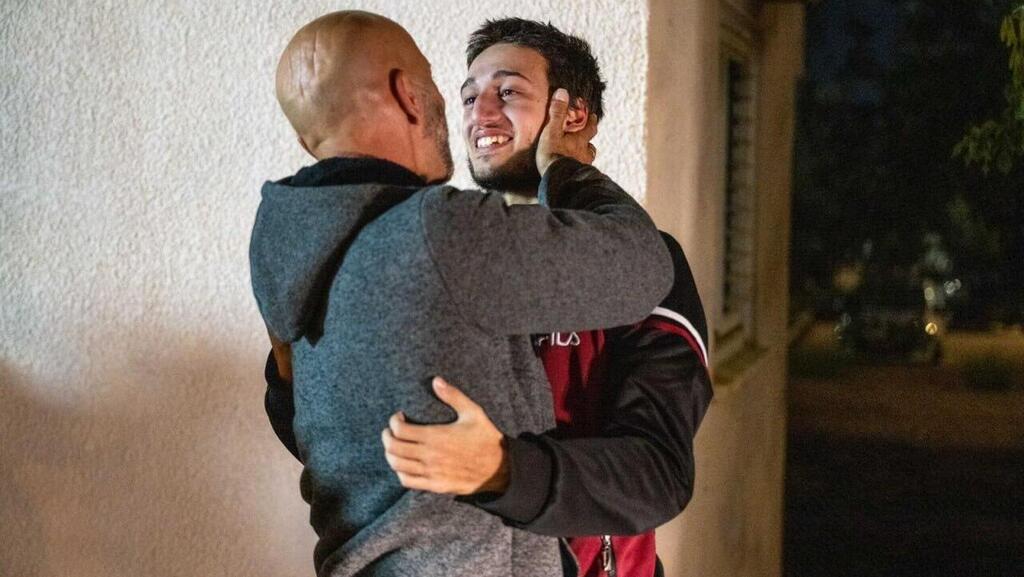

Liam Or greets his father after 54 days in Hamas captivity
(Photo: IDF Spokesman's Unit)
"Half a stone has been removed from our hearts. There is great excitement," said the couple's friend Ofir Kochavi, who was the last to be in contact with her. "We have a lot of gaps to fill. We were excited when we saw her picture go by. It was crazy. I haven't spoken to her yet. I don't know what to say to her when I see her. We'll start with a hug. I don't know what condition she's in either."
About that morning on October 7, Kochavi said a few weeks ago: "She is a very calm girl, and when I called her, she sounded very, very upset. That morning there was panic in her voice. I asked her what was going on, and she told me 'horror'. I asked her where Aviv was, and she said he was outside fighting terrorists."
Thelma Atzili, 78, Aviv's mother, hid in the secure room and survived the massacre, while the terrorists destroyed and looted her home. "All of us, the remaining members of Kibbutz Nir Oz, have a bleeding wound. We are broken," she said last month. "I don't have a kibbutz to return to, and I don't have a country. We were sure all these years that no one would be able to evict us, but we were evicted from our home with a feeling of humiliation."





